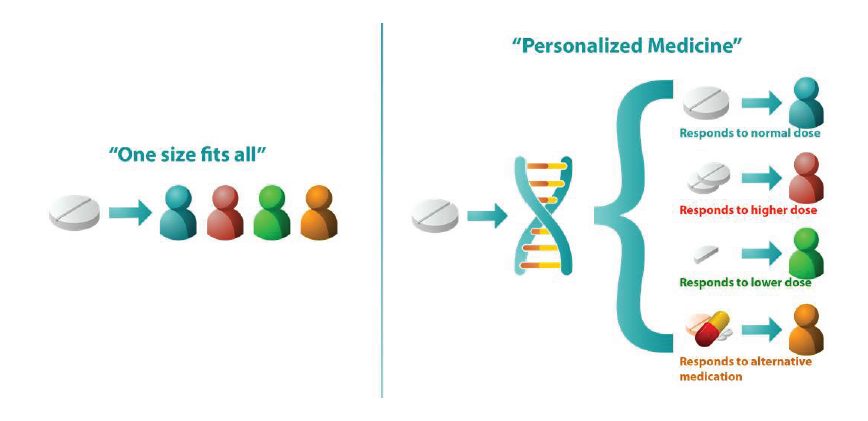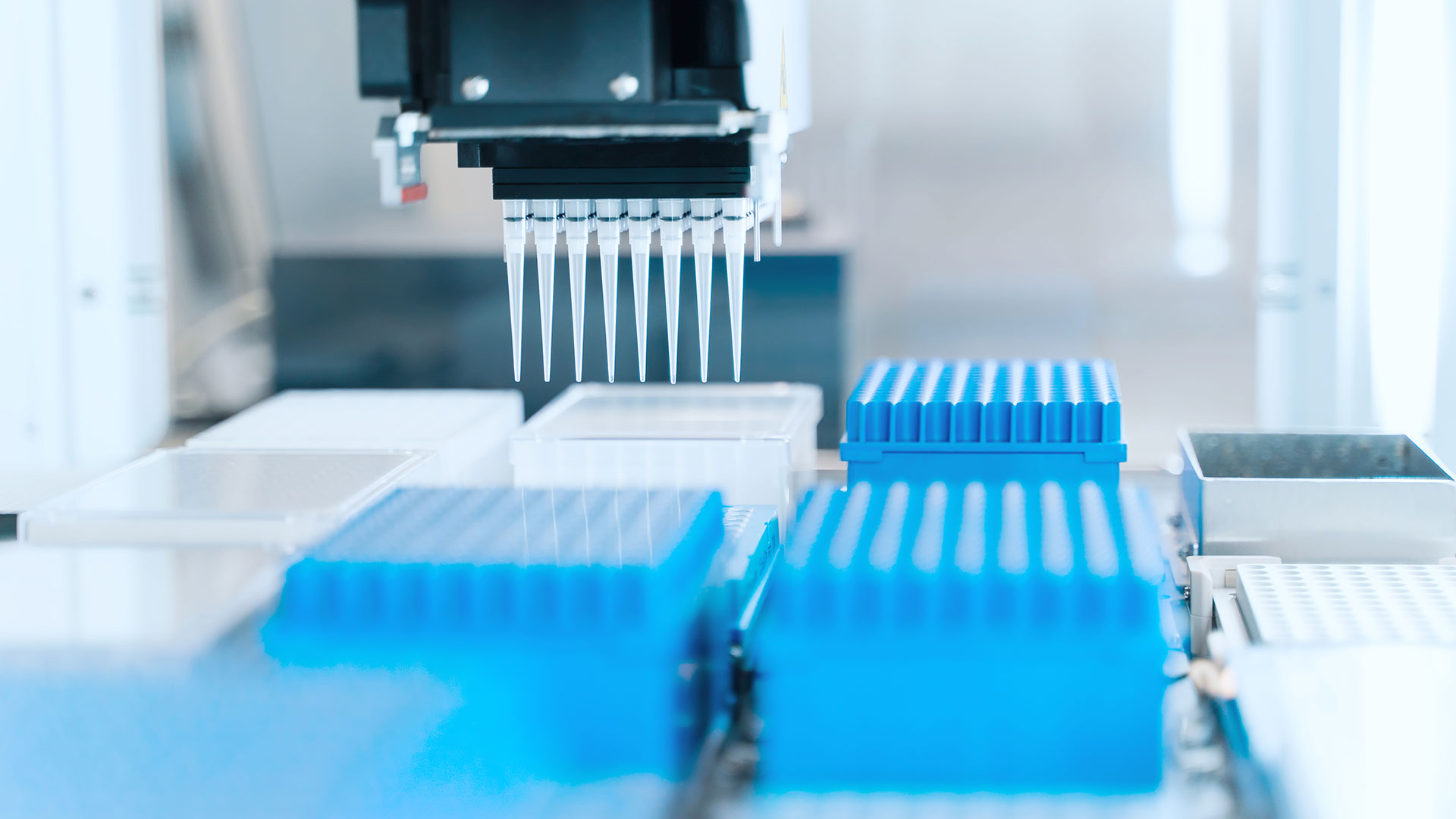Almost 99% of us carry at least one modification in our DNA that affects our response to many prescribed and over the counter medications, resulting in either unnecessary side-effects or it not working properly. Selection and dose of medications should NOT be a “one size fits all” approach.
Specific genes in our DNA code for specialised enzymes that metabolise our medications or that change how the medication reaches a specific part of the body. Variations in these genes can cause significant differences in enzyme performance resulting in a drug not working in quite the same way in one person as it does in another.
You may metabolise the drug too quickly meaning that it might all be gone before it has its intended effect and therefore the standard dose is not enough for you. Or, you may metabolise the drug too slowly, and it hangs around for too long, building up beyond safe levels in your body, leading to side effects. A medication that is safe for someone else may be dangerous for you, even at the same dose, and should be avoided.

A pain-free swab is sufficient to screen specific genes in your DNA responsible for drug metabolism, providing assistance in choosing, or changing to, more appropriate medications at dosages suited to you, and which to avoid.

Order online and we will send you a home DNA sampling kit containing everything you need. Kits are sent via First Class post.

Follow the instructions included in the sampling kit, complete the paperwork, then send the sample back to our laboratory using the pre-paid Tracked 24 box.

36 genes responsible for drug metabolism are analysed, providing recommendations regarding the prescription of many commonly used medications.

Your reports will be sent directly to your Medical Practitioner within 20 working days.
Testing is very easy with no need for an appointment with a Dr or nurse but as this is a clinical test the information the test provides means that either a GP or a Clinical Pharmacist must consent to interpreting the report with you before you order the test. Contact us at lab@fgih.co.uk if you would like us to refer you to a private GP practice who can help.
You will receive both an easier to interpret summary report and a detailed comprehensive report. The test cannot be processed without a signed Test Request Form.

Pharmacogenomics testing has revealed that more than seven out of ten of us are not “normal” metabolisers (the rate at which we break down a substance in our body) of many commonly prescribed medications covering multiple conditions. This results in a drug being ineffective or resulting in significant side effects in many of us. By identifying how our DNA influences our response to our medications we can reduce the number of side effects we might be experiencing, either now, or in the future. You may be able to reduce the length of time you are on a drug, as well as improve overall quality of life by starting more effective treatments.
The test is particularly beneficial if you are on five or more medications as you are at a higher risk of experiencing side effects related to drug–drug/drug–gene interactions. These side effects; such as weight gain, cardiovascular complications (such as bleeding, bruising, anaemia, fatigue, bradycardia, coughs), sedation, sexual dysfunction, gastrointestinal issues, nephrotoxicity, hormonal imbalances, antimicrobial resistance, nausea, and dizziness.
With access to the award-winning tools ReviewGx and TreatGx we can enhance treatment selection by utilising condition-specific algorithms that incorporate both pharmacogenetic and clinical data. This means prescribing recommendations are made based not on your Pharmacogenomics result, but also on current medications, past medications, liver function, kidney function, allergies and other medical conditions if provided to us.
Our pharmacogenomics test is proving exceptionally useful and life-changing for those on those on cardiovascular and stroke medication (such as Clopidogrel), mental health, neurological and pain medications, oral contraceptives and hormone replacement therapy.
Being a DNA test, this is a once off test for life. Your DNA does not change. We can revisit your report as new possible medications are offered to you. No need to retest.
Your kit will include easy to follow instructions plus the following items:
A) Two swabs
B) Two tubes
C) Two barcodes
D) Protective pouch
E) Prepaid return postage box


Discover how your DNA influences your response to medications. This test will support you in finding the right drug, at the right dose.

Guides recommendations regarding 36 genes covering the prescription of many medications across multiple clinical categories.

Provides clinically actionable dosing guidance for all genes covered excluding those with only weak or no documented clinical guidance.
For your own health and safety you must not stop taking, or adjust dosages of, drugs yourself upon receiving your final report. The report should be used, along with the your medical history and any other relevant personal medical information, such as your age, weight, height, kidney and liver function. There are other factors that can affect how you respond to a particular drug. This test cannot identify a drug allergy, intolerance or the impact of all drug-drug interactions.
